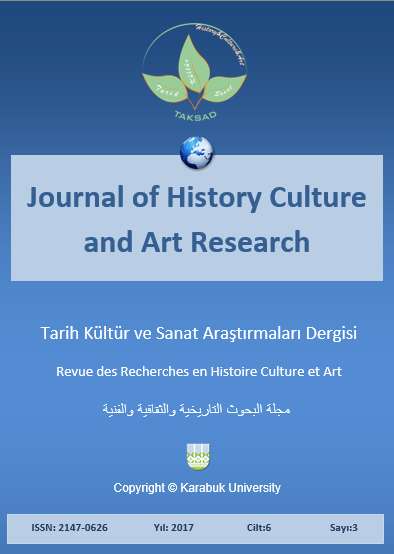Moscow Autocracy of XVI - XVII Centuries: Eastern ‘’Despotism’’ or an Early Modern European Monarchy?
DOI:
https://doi.org/10.7596/taksad.v6i3.988Keywords:
Early New time, Early-modern state, Political institutions, Political regime, Legal system, Absolutism, Western Europe, Russian state, Autocracy.Abstract
The article considers the problems related to the peculiarities of the Russian state political and legal development during the early New Time (XVI-XVII centuries) in a comparative-historical aspect against the background of similar processes taking place in neighboring European states. The authors come to the conclusion that, despite certain, dictated by objective reasons (first of all, the conditions for the emergence and subsequent development), there are more common features than the differences between the processes of the political and legal sphere development in Russia and Western Europe. The fact that this community escaped from the view of researchers is related, in the authors' opinion, to the fact that foreign observers, describing the political system of an early Russian state, dealt only with an outer shell, while its internal contents remained if not a secret, then, in any case, a mystery for them. They were not admitted to the Russian political cuisine, and therefore the details of Russian political and legal institution functioning remained unavailable to them.
References
Elliott, J. H. (1992) A Europe of Composite Monarchies: Past & Present. Number 137. The Cultural and Political Construction of Europe: 48-71.
Halperin C. J. (2002). Muscovy as a Hypertrophic State: A Critique. Kritika: Explorations in Russian and Eurasian History, Volume 3, Number 3 (New Series); 501-507.
Henshall N. (1992). The Myth of Absolutism. Change and Continuity in Early Modern European Monarchy. London and New York: Longman.
Kollmann N. S. (2012). Crime and Punishment in Early Modern Russia. Cambridge: Cambridge University Press.
Königsberger, H. G. (1978). Monarchies and Parliaments in Early Modern Europe Dominium Regale or Dominium Politicum et Regale. Theory and Society. Vol. 5. 2: 191-217.
Krom, M. M. (2005). Understanding Muscovite ‘Politics’ of the 16th century: Discourse and Practice of Russian Late Medieval Monarchy / Odysseus. Man in History. Festival Time and Space. 2005: 283-303 [in Russian].
Krom, M. M. (2010). Widowed tsardom: political crisis in Russia during the 30-40s of the XVI-th century. Moscow: New literary review [in Russian].
Liseytsev D. V.; Rogozhin N. M. & Eskin Yu. M. (2015). The Prikazes of the Moscow State XVI - XVII centuries. Moskva – Sankt-Petersburg: Humanitarian initiative center [in Russian].
Poe М. (2002). The Truth about Muscovy. Kritika: Explorations in Russian and Eurasian History, Volume 3, Number 3 (New Series): 473-486.
Rustemeyer A. (2010). Systems and Senses: New Research on Muscovy and the Historiography on Early Modern Europe. Kritika: Explorations in Russian and Eurasian History, Volume 11, Number 3 (New Series): 563-579.
Downloads
How to Cite
Issue
Section
License
All papers licensed under Creative Commons 4.0 CC-BY.- Share — copy and redistribute the material in any medium or format
- Adapt — remix, transform, and build upon the material for any purpose, even commercially.
Under the following terms:
Attribution — You must give appropriate credit, provide a link to the license, and indicate if changes were made. You may do so in any reasonable manner, but not in any way that suggests the licensor endorses you or your use.
- No additional restrictions — You may not apply legal terms or technological measures that legally restrict others from doing anything the license permits.







